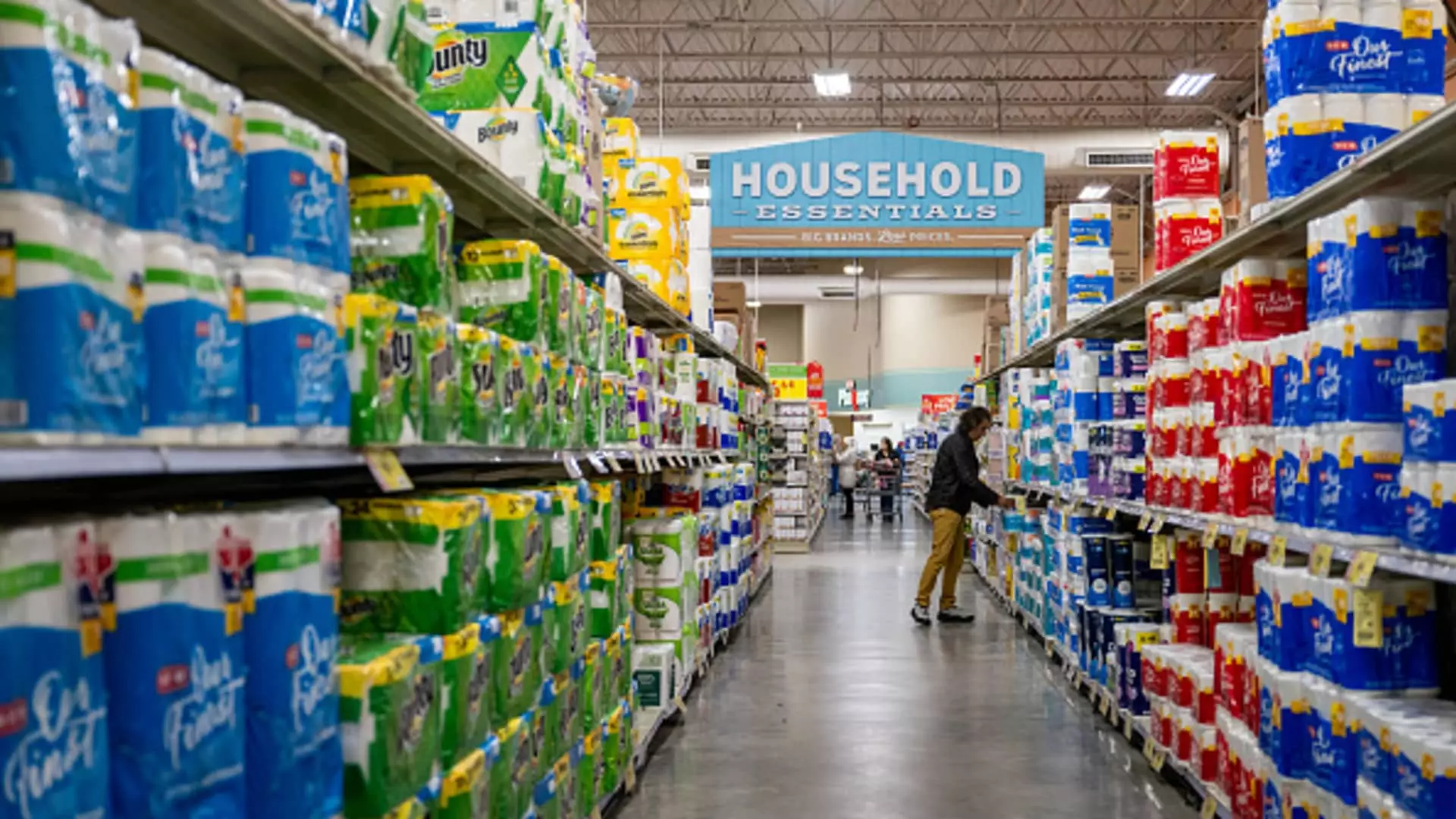As the Trump administration rolls out its ambitious trade agenda, consumers find themselves at a crossroads. The drive to bring jobs back to America through steep tariffs on imports is not just a political maneuver; it carries tangible ramifications for everyday shoppers. We are entering a reality where our morning rituals, from coffee to toiletries, may see a sharp increase in prices. This ostensibly protective economic strategy could inadvertently bleed our wallets dry, revealing the complexity and potential pitfalls of a simplistic “America First” trade policy.
The Reality of Dependence: Ingredients That Aren’t Made in America
It’s easy to overlook the intricate web of global trade that fuels our daily lives. While the intention behind the tariffs might be to safeguard American jobs, the Consumer Brands Association (CBA) cautions us that certain key ingredients simply cannot be sourced domestically. The irony is profound: in an attempt to bolster our own economy, we risk suffocating it by making essential goods less accessible. For instance, we rely heavily on imports for staples like bananas, vanilla, and coffee—luxuries that are rapidly becoming less affordable. According to the CBA, nearly 40% of all bananas consumed in the United States arrive from Guatemala. Imposing a 10% tariff will not just inflate prices; it will threaten food security and cultural staples.
Spices, Styles, and Soaring Costs
One might think high tariffs predominantly impact luxury items, but the chaos extends well into everyday purchases. The CBA points out that the cost of spices, already burdensome as the second-most expensive global commodity, will escalate further thanks to new tariffs on imports from Madagascar—home to most U.S. vanilla supply. A staggering 47% tariff will add insult to injury, forcing consumers to face inflated prices for cooking essentials. The erosion of affordable choices poses significant risks for home cooks and small business owners alike, who pivot on reasonably priced ingredients.
Structural Challenges in U.S. Agriculture
In addition to immediate consumer costs, there exists a long-term issue regarding the changing agricultural landscape in the U.S. Dependency on foreign imports for crucial grains like oats has grown alarmingly; the CBA notes that over 90% of milled oats come from Canada. A historical lack of investment in domestic oat production is now catching up to us, as the decline in U.S. agricultural acreage leaves us ill-equipped to meet our own demands. We should question if tariffs will really promote self-sufficiency when they seem more like a band-aid on a gunshot wound.
Not Just Food: The Broader Impact on Household Goods
Even household essentials are not immune to the tariff storm. Diapers, lotions, and shampoo—staples of modern life—are projected to surge in cost due to increased tariffs on the raw materials used in their production. For instance, the 32% duty on palm oil, primarily imported from Indonesia, will have a downstream effect on numerous products we take for granted. This alarming chain reaction radically shifts how families budget and purchase necessities, making basic hygiene and convenience items suddenly more of a luxury than a right.
Financial Markets and Consumer Trust: A Divergent Path
Surprisingly, markets reacted ambivalently to the tariff announcements, with shares in consumer staples like Procter & Gamble and Coca-Cola climbing shortly after. While investors may flock to stable options amid uncertainty, the broader implications for consumers cannot be ignored. Families are already strained by various economic pressures, and the added burden of increased costs for essential goods is likely to erode consumer trust in both manufacturers and political leaders.
While the objectives of returning jobs to American soil possess merit, the practical applications of such ideology leave much to be desired. As the price of our daily essentials begins to climb, it becomes painfully clear that protectionism may exacerbate the very problems it seeks to solve. The government’s myopic view on imports overlooks the fundamental complexities of our economic landscape, and it is everyday consumers who will pay the ultimate price for these misguided policies. Seeking a balance between national pride and global accountability remains an open challenge for future administrations.


Leave a Reply